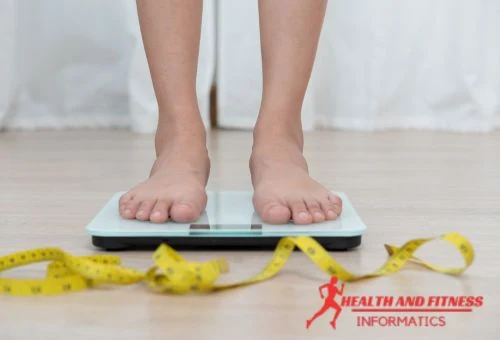6 Week Plan Ozempic Weight Loss Results with Different Doses
The study
examined weight loss outcomes associated with subcutaneous semaglutide, even at
doses exceeding 1.0 mg, in overweight individuals, with or without type 2
diabetes. Individuals experienced a weight loss of approximately 6.7 kg (5.9%)
at 3 months and 12.3 kg (10.9%) at 6 months, representing.
Overview
With over 37 million Americans having diabetes, most with type 2 diabetes mellitus (T2DM), managing it is crucial. It often requires multiple medications to reach target HbA1c levels. Metformin is usually the first therapy, along with others like SGLT2 inhibitors and GLP1 receptor agonists, chosen based on health conditions and heart disease risk reduction. These medicines are effective in lowering HbA1c and have low hypoglycemia risk. GLP1 receptor agonists, known for weight loss, like semaglutide, dulaglutide, and tirzepatide, are FDA-approved for T2DM patients. With obesity rates rising, these meds are increasingly used for weight management too. Understanding their differences is crucial for diabetes and weight management1.
As Dr. Gaurang Dhar, a practicing
physician, mentioned the most popular weight loss drug, "No doubt, Ozempic
(semaglutide) has numerous favorable effects, such as cardiorenal benefits. But
it should be used with caution." He also stated, "Since semaglutide
is used to manage obesity and Type 2 Diabetes (T2D), hypothetically, Ozempic
should be used lifelong." Dr. Gaurang Dhar also provided facts about the
risk of using Ozempic, stating that it should be used after a professional
healthcare provider's prescription, with a detailed family history, as
semaglutide may cause medullary thyroid carcinoma (MTC)2.
What is Ozempic and how does it work?
Ozempic
or semaglutide((C187H291N45O59; 4113.58 g/mol) is an emerging and effective
weight loss drug, that healthcare providers prescribe to improve blood sugar
control with type 2 diabetes. It falls under the category of drugs called GLP-1
(glucagon-like peptide-1) receptor agonists. This hormone (GLP-1) helps you regulate blood
sugar levels by prompting insulin release slowing digestion, and curbing
appetite.
How does Ozempic help to manage diabetes and obesity?
Diabetes, especially type 2 (T2D), is a health problem that
impacts the eyes, heart, kidneys, blood vessels, and nerves. It's often caused
by inactive lifestyles and unhealthy diets. To manage it, people use different
medications to control their blood sugar and prevent complications. The term
"diabesity" combines diabetes and obesity, as being overweight
elevates the chances of getting type 2 diabetes and other diseases. You can
manage obesity through lifestyle changes, medicine, and surgery. Some medicines
used for diabetes, like semaglutide and liraglutide, can also help you to shed
weight3.
Ozempic one month results
How much weight can you expect to lose in a month while taking Ozempic?
A study reveals that “Individuals taking Ozempic lost 11% more weight than
those on placebo. By week 12, Ozempic users had a 5.9% decrease in body weight.”
This means you can lose 1.9% of body weight in a
month, for example, if your initial weight is 220 pounds (100 kg), you can lose
4.18 pounds (1.9 kg) in just a month with Ozempic.
Editor's picks
Wellbutrin weight loss before and after
Is Ozempic safe to use?
Dr. Seigel (MD,
co-director of the Diabetes and Lipid Center at the Weight and Wellness at
Tufts Medical Center), says “ Ozempic has been utilized to treat T2D (type 3
diabetes) since 2017, so we have a lot of data that shows ozempic is safe, at
least at lower doses4.”
Can Ozempic be used by people of all ages and is it available only in injection form?
Ozempic is available as monotherapy in
both subcutaneous (injection) as well as oral dosage forms (first approved oral
GLP-1 receptor agonist). It has been approved as a second-line treatment option
for better glycaemic control in T2D (type 2 diabetes) and at this time under
study for anti-obesity purposes. Ozempic has been proven to be safe in adults
and elderly patients with renal or hepatic disorders demanding no dose
modification5.
How long does it take for Ozempic to work?
Generally, ozempic makes a change in weight within a few weeks of
starting this treatment. However, noticeable changes in weight and blood sugar
levels may take some time. Most people take several weeks to a few months, to
become noticeable.
6 week plan Ozempic weight loss results
After using Ozempic for 6 weeks you will not only experience noticeable
weight loss but, also other physical and clinical changes including:
1. Initial adjustment phase
During the first few weeks, you may experience side effects such as
diarrhea, fatigue, vomiting, and nausea. However, these symptoms usually
disappear as your body adjusts to the medicine.
2. Progresses blood sugar control
As I discussed above Ozempic is an effective drug in lowering blood sugar
levels in people with T2D (type 2 diabetes). After taking Ozempic for 6 weeks
you may start to experience improved blood sugar levels, as a result, your
diabetes management and overall health will improve.
3. Noticeable Weight loss
You may start to experience gradual weight loss during the first 6 weeks
of using Ozempic. This happens due to regulating your blood sugar levels and
reducing appetite.
4. Elevated energy
Due to the stabilized blood sugar levels and weight loss, you may experience
improvement in mood and an increase in energy levels.
In summary, 6 weeks on Ozempic can be the start of a positive weight loss
journey, better diabetes management, and improved overall health. It's
important to keep your healthcare provider updated, throughout your Ozempic
weight loss journey for proper guidance and support.
Editor's picks
Trulicity weight loss, user reviews
Semaglutide 6-week belly Ozempic weight loss before and after pictures
Ozempic is effective against cardiovascular problems
In a study with 3297
participants, 83% had cardiovascular and/or renal issues, and semaglutide
showed a 26% decrease in cardiovascular events by slowing atherosclerosis.
Subjects were given either weekly injections of 0.5 mg or 1.0 mg of semaglutide
or a placebo for 104 weeks. Primary outcomes, including cardiovascular death
and non-fatal stroke/myocardial infarction incidents, were seen in 6.6% of the
semaglutide group.
Semaglutide
also led to significant reductions in HbA1c and body weight.
Mode of administration
How can I use a subcutaneous dose?
Initially, you can use the Ozempic dose
of 0.25 mg, then increase to 0.5 mg and 1.0 mg, keeping 4-week intervals.
Ozempic is available in two doses:
- Initiation dose: It is available in volumes of 0.25 mg and 0.5 mg for maintenance purposes (available in a red pen).
- This is the maximum maintenance dose and is available in a blue pen.
How can I use an oral dose?
You can use the
oral dosage form of Ozempic (Rybelsus), which comes in 3 mg, 7 mg, and 14 mg
tablets. It contains semaglutide along with a fatty acid derivative called SNAC
(Sodium-N-[8-(2-hydroxybenzoyl)amino]caprylate), which helps enhance its
absorption.
It would be better
if you took an Ozempic tablet, 30 minutes before a meal on an empty stomach.
This helps the medication to be absorbed properly and prevents it from being
broken down by stomach acids5.
Editor's picks
My Ozempic 6 week weight loss journey
How does Ozempic effective before taking a meal?
A study stated
seventy-eight healthy individuals were given oral semaglutide once daily,
either after eating a meal or while fasting, for 10 days. The findings
indicated that taking semaglutide on an empty stomach is essential for reaching
the required therapeutic levels in the bloodstream.
How does Ozempic help in managing diabetes and support weight loss?
Health experts
suggest numerous factors that facilitate weight loss and managing diabetes
- Reduce appetite
- Reduce energy intake
- Reduce HbA1c levels
- Increase insulin secretion (glucose-dependant)
- Inhibit the release of glucagon
- Suppressed hepatic gluconeogenesis
- Reduce the risks of hypoglycemia
- Reduce the occurrence of cardiovascular illnesses (24%)
Ozempic weight loss before and after
A study was conducted
on a 6 week plan ozempic weight loss plan results that “Six studies with 3962 overweight or participants found
that ozempic led to noteworthy and lasting weight loss compared to a placebo.
It also reduced body mass index, and waist circumference, and achieved higher
proportions of patients with weight loss exceeding 5%, 10%, 15%, and 20%.”
Ozempic side effects
No doubt, Ozempic
has proven to be effective in weight loss, but it also has certain side effects
including:
- Nausea
- Vomiting
- Diarrhea
- Fatigue
- Constipation
- Changes in vision
How sleep patters affect your fitness
Alpine Ice hack for weight loss
What are the differences in weight loss when comparing different doses?
In the study, 77 patients
(44.0%) received the highest current doses of subcutaneous ozempic (1.7 and 2.4
mg), while 98 (56.0%) received lower doses (0.25, 0.5, and 1 mg). Patients who
received the highest doses experienced a mean (SD) weight loss of 6.9% (3.9%)
at 3 months compared to 5.1% (3.4%) for those receiving lower doses (P = .002).
At 6 months, patients on the highest doses achieved a mean (SD) weight loss of
12.1% (5.9%) compared to 9.2% (5.2%) for patients on lower doses (P = .01). The
cohort showed a wide range of weight loss responses to semaglutide at both 3
and 6 months, ranging from 3.6% to -14.3% and -0.6% to -29.1%, respectively.
What are the weight loss differences between with or without type 2 diabetic patients?
In a recent study, it was
observed that patients with type 2 diabetes tended to lose less weight compared
to those without the condition. This finding has been consistent with previous
research on semaglutide and similar medications. One possible explanation for
this difference is a greater decrease in energy expenditure among patients with
type 2 diabetes. Additionally, improvements in glucose control may lead to a
reduction in glycosuria, resulting in a positive calorie balance that makes
weight loss more challenging. Furthermore, certain antidiabetic medications
such as insulin and glipizide have been linked to weight gain, which could also
influence weight loss outcomes in patients with type 2 diabetes.
Should I change my lifestyle while taking ozempic?
As Dr.
Seigel says “You can likely lose weight on ozempic without changing your diet
and activity behaviors. However, these lifestyle changes will make the
treatment more effective4.”
Will I have to take Ozempic forever and what will happen if I stop taking ozempic?
You can
regain about two-thirds of the weight lost within a year of stopping the
ozempic. However, lifestyle changes can help maintain weight loss, but it’s
unusual to maintain all weight loss once you stop any weight loss medication.
Risks
What are the risk factors of taking Ozempic?
There
are certain risks associated with using ozempic such as:
- Skin problems such as rashes, urticaria, pruritus
- Retinopathy (preventable blindness)
- Nephropathy (liver function problems)
- Gastrointestinal disorders
- Acutepancreatitis
What will happen if I use Ozempic for years?
Taking ozempic
or years may vary from person to person. Some people may experience constant
improvement in weight loss goals, improved overall health, and quality of life
over the long.
Over time, some
individuals may notice a decrease in the effectiveness of Ozempic. Additionally,
others may experience side effects from prolonged use of the medication.
However, it's worth noting that these side effects are usually mild and
temporary.
After
all this discussion, I suggest you contact a professional healthcare provider
to plan a healthy weight loss plan.
Suggestions for enhancing your weight loss experience
To ensure a positive experience while
taking Ozempic, here are I recommend some helpful tips:
- Add healthy lifestyle habits to your daily routine, including a balanced diet, and exercise to facilitate the effects of Ozempic.
- Drink plenty of water to keep your body hydrated throughout the day.
- Be aware of possible side effects and make an immediate appointment with your healthcare provider, if you experience any distressing symptoms.
- Follow the instructions of your healthcare provider cautiously regarding dosage and administration.
- Monitor your blood sugar levels repeatedly and talk to your healthcare provider if you feel any change.
- Keep monitoring your weight loss and blood sugar levels progress and celebrate small achievements.
- Keep updated about Ozempic and diabetes management, on the internet or their official website.
- You can join weight loss support groups or WhatsApp communities.
- The most important point of this incredible journey is to be patient and committed to your Ozempic weight loss plan.
Conclusion
Ozempic is an effective weight loss and diabetes management drug. It is available in both subcutaneous and oral forms and is a potent treatment for type 2 diabetes (T2D). Health experts suggest Ozempic is safe for use in adults with liver or kidney disorders.Usually, it will take a few weeks to experience changes in your weight and blood sugar levels after starting Ozempic. A 6-week Ozempic weight loss plan often results in significant weight loss, improved blood sugar control, elevated energy levels, and mood enhancement. Additionally, Ozempic has shown effectiveness in reducing cardiovascular events by slowing atherosclerosis and improving lipid profiles. The dosage can be increased gradually, and the oral form should be taken on an empty stomach for optimal absorption. It's important to be aware of potential side effects and to stay committed to your treatment plan







.jpg)
Post a Comment